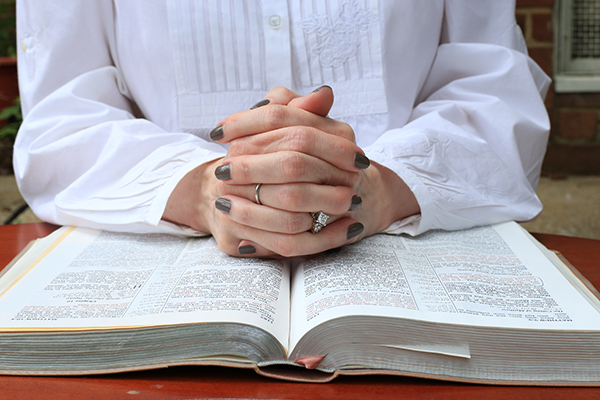Doug Webster said he got an email recently that disturbed him a little bit.
“The sender, a leader of an interdenominational group of pastors, sent out a blog encouraging pastors to spend 15 minutes on Sunday reflecting on the Scriptures.”
And Webster wondered — if spending 15 minutes in the Scripture they’re preaching on Sundays is a struggle for pastors, then what’s happening with the people in the pews?
“I realized I must be way underestimating the issue,” said Webster, professor of divinity at Samford University’s Beeson Divinity School in Birmingham, who has spent a lot of time studying and writing on the topic of personal devotion, worship and meditation.
It’s time to be honest, he said — honest with ourselves and honest with each other.
“Our relationship with God, it’s just like friendship. We can’t say we have good friends if we aren’t putting the time into listening to them,” he said. “Our devotion to God is personal, and He speaks to us through His Word. If we say that we have a personal relationship with Jesus Christ, that’s just words unless we are listening and engaged in the relationship.”
Speaking through His Word
So how do we have that kind of “relational honesty” when it comes to our worship and what we say we believe?
Webster said it’s all about investing — really investing — in the habit of personal worship.
“When we talk to people about carving out 15 to 30 minutes a day to read the Bible and pray, we’re approaching people not with candy but with the reality that it is a discipline and that they have to be willing to put in the time,” he said.
Keith Hibbs, director of the office of worship leadership and church music of the Alabama Baptist State Board of Missions, said consistency and daily discipline is vital to the life of the Christ-follower.
“The Christian life is a day-to-day, minute-to-minute thing and we need to be on our knees and in Scripture daily,” he said. “We need to understand God’s perspective on how we deal with our daily life and you just can’t get that in Sunday morning worship time.”
Hibbs said he equates it to learning how to play a musical instrument — “You learn a lot more in 15 minutes a day done consistently than in three hours one day.”
Webster said it doesn’t matter what time of day you do it so long as you set the habit.
“Some people are morning people and some people are night people. It’s not important when you do it, just that you set aside time that you can be quiet with the Word,” he said.
Daily discipline vital
There’s so much available in the way of commentaries and resources these days, Webster said — “The Bible in one hand and a commentary in the other is a great way to start.”
He said the habit of personal prayer and Bible study and worship was hard-wired into him from a young age by his family’s practice of reading and praying together.
“I was raised in a home where the Word was authentically read and listened to,” he said. “Every day in our family of four, someone opened with prayer, someone read Scripture, someone read ‘Daily Bread’ and someone else prayed at the end, a little more extensively for whatever was on our minds and hearts.”
Regular reading
So at a young age, Webster began to read and study on his own too.
“I started reading the Bible early in the morning and taking notes,” he said.
It’s a habit he still keeps up today, as does Hibbs.
“One of the things I like to do is a character study, on someone like Simon Peter,” Hibbs said. “I’ll look through all the Scripture at the narrative of his life and trace his journey in terms of his growth, how he grew to understand who Jesus was and how Jesus changed him through his lifetime.”
Then, he said, he’ll try to put himself in that character’s place.
Incorporate music
He also likes to read the Psalms and incorporate music into his personal worship by either listening to worship songs or turning off the radio and singing songs that have been on his heart that week.
“The most effective corporate worship is the worship individual members have in their own worship time during the week,” Hibbs said. “There’s no way that a Christian can be effective and grow if there is not personal worship and reflection and personal study of Scripture.”





Share with others: